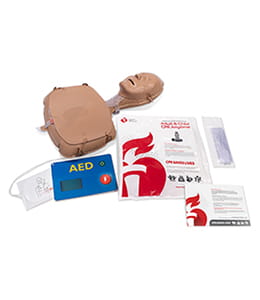 Go Red for Women®
Go Red for Women® 9 Grocery Shopping Tips
Who doesn’t look for ways to save both time and money? With these tips, you can fill your cart with healthy food, stay on budget, and be in and out of the store in record time.

Women motivate each other. Educate each other. Support each other. Inspire each other. Let’s Go Red together to be seen, to be counted, to be heard, to make an impact.
Cardiovascular disease is the No. 1 killer of women
Since 2004, the American Heart Association’s signature women's initiative, Go Red for Women, has addressed the awareness and clinical care gaps of women’s greatest health threat, cardiovascular disease (CVD). We are prepared to meet the evolving needs of women now, and at every age, every stage and every season of their lives as their trusted, relevant source for credible, equitable health solutions.
![]()
Nearly 45% of women ages 20+ are living with some form of cardiovascular disease.
![]()
Less than half of women entering pregnancy in the U.S. have optimal cardiovascular health.
![]()
Women experience unique life stages, such as pregnancy and menopause, that can put them at an increased risk for CVD.
What’s Happening Now
Young Nurse Shares Hope with Other Stroke Survivors

Fast action from her husband helped save Alex Wilson-Garza when she started having a stroke. Her own experience in the hospital improved the way she now relates to her patients.
Essential Sleep Advice for Mom’s with Teens

Quality sleep is essential to the health of a growing body. Moms, learn how to help your teen ditch the barriers to a good night’s rest and catch more zzzz’s.
Hearts on the Court Collective

Led by Louisiana State University’s Kim Mulkey, the Hearts on the Court Collective is comprised of NCAA women’s basketball coaches taking a stand in support of women’s heart health.
Go Red Together
Find ways to get connected to and support other women.
Connect to a Healthier You
Learn more about risks, prevention, healthy lifestyle, risk reduction and more.
Connect with Your Community
Volunteer, attend an event, join a philanthropic group, or connect on social media.
Connect to Support
Living with cardiovascular disease or caring for someone who does? Find support.
Connect with Research
Participate in research and inspire the next generation of women leaders in STEM careers.
Connect to Make an Impact
Help advance our mission and advocate for policies that support all women’s health and well-being.
Supporting Women at Every Age and Stage of Life
Pregnancy and Maternal Health

Heart disease is the No. 1 killer of new moms. It can pose a threat to women’s heart health during pregnancy and later in life.
Mom Life

Moms, grandmothers, aunts and other maternal figures do so much for their families. But this can mean taking care of their health sometimes comes last.
Menopause

Prioritizing your health is important before and after menopause. Learn about menopause, its symptoms and impact on your health.
Go Red Gear
Pins, pamphlets, shirts and more! We have everything you need to Go Red to
raise awareness, show your support and help fund our mission with every purchase.
Shop & Go Red! raise awareness, show your support and help fund our mission with every purchase.




